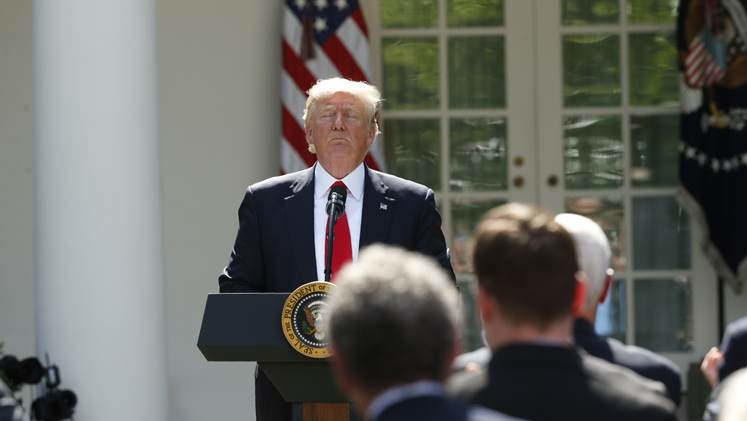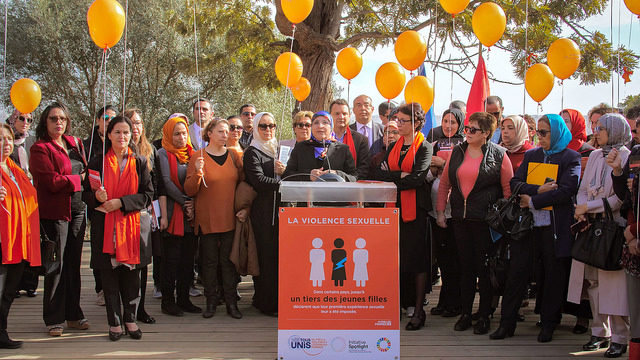
UN Women and partners led a global “Orange the World” campaign to end violence against women and girls last year, which sparked activist movements around the world, like this group composed of civil society, UN and general public members in Rabbat, Morocco, to speak up about violence against women. Photo: Younes El Moumine/UN Women
Av: Lou Darriet
Women throughout history have faced sexual violence in conflict environments, but the recent allegations against humanitarian workers’ sexual misconduct might be the beginning of a shift towards fighting gender-based violence worldwide more proactively. Development and humanitarian actors worldwide are stepping up to ensure the safety and security of women and girls in conflict and post […]
Läs mer »
14 april, 2018, Article, English, FUF Lund, Magazine
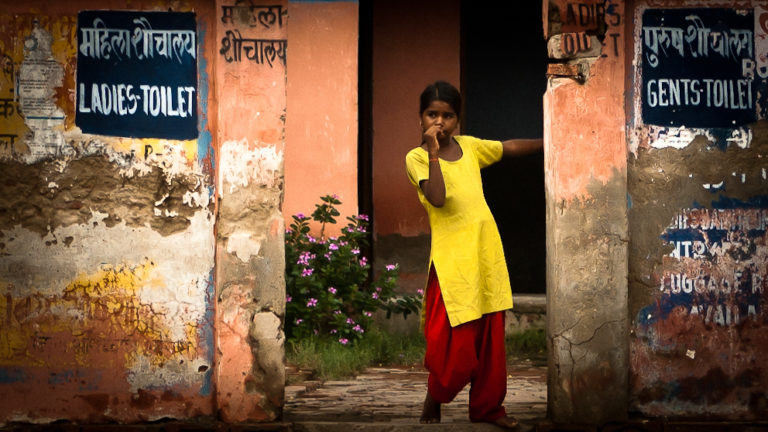
Access to clean, protected and gender-separated toilets would encourage girls to go to school, also when they are menstruating. Fatehpur Sikri, India. Photo: Flickr, Ignas Kukenys
Av: Elin Fredriksson
When the train from Delhi sets off to the north of India, it passes by long fields at the outskirts of the capital. In the early morning, the passengers of the train can observe how dozens of men and women walk around in the field and eventually bend down to defecate. It is the daily […]
Läs mer »
1 april, 2018, English, FUF Lund, Magazine, Reportage
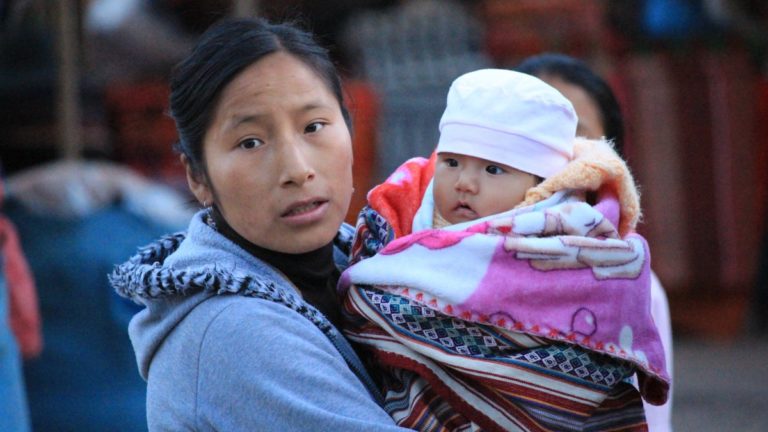
Conditions for women in Latin America are improving. A portrait of a woman with her child in the Peruvian Andes. Photo: PxHere
Av: Jonathan Wirths
A study in Latin America found that, given equal conditions, female household heads experience better living conditions than their male counterparts. The number of female-headed households has increased rapidly over the last decades as more and more people diverge from traditional relationship and livelihood arrangements. What does this mean for development actors and how is […]
Läs mer »
22 mars, 2018, Article, English, FUF Lund, Magazine
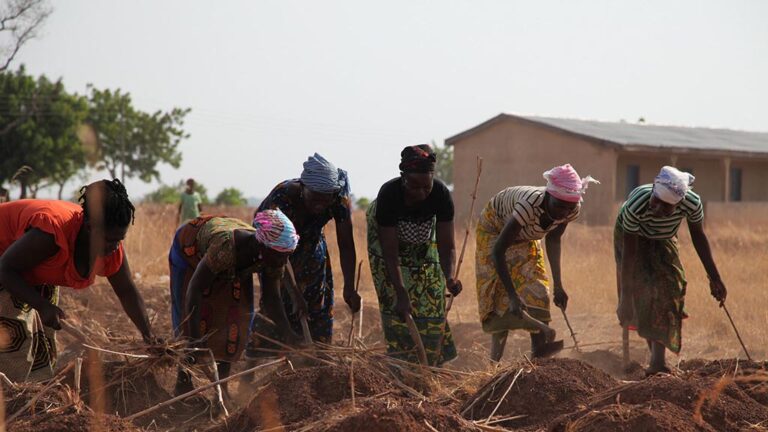
Members of Rural Women’s Farmers Association of Ghana preparing a field for sowing near Lawra. Photo: Global Justice Now, Flickr
Av: Johanna Caminati Engström
On a global scale, women produce more than half of all the food that is grown, but they are still the majority of those undernourished. The food sovereignty movement challenges the economic polarization within the food system and tries to address the causes of disempowerment that lead to hunger from a feminist perspective. Yes, it’s […]
Läs mer »
15 mars, 2018, Article, English, FUF Lund, Magazine

The menstrual cup is on the rise. Photo: Intimina, Flickr
Av: Brita Bamert
Menstruation has historically been, and is still today, a cause of discrimination. Women in the past were separated from public spaces when menstruating and disqualified from most types of work because menstrual blood was seen upon as something dirty and sinful. Today, in the 21st century, Indian women and girls are not allowed to step inside […]
Läs mer »
8 mars, 2018, Chronicle, English, FUF Lund, Magazine
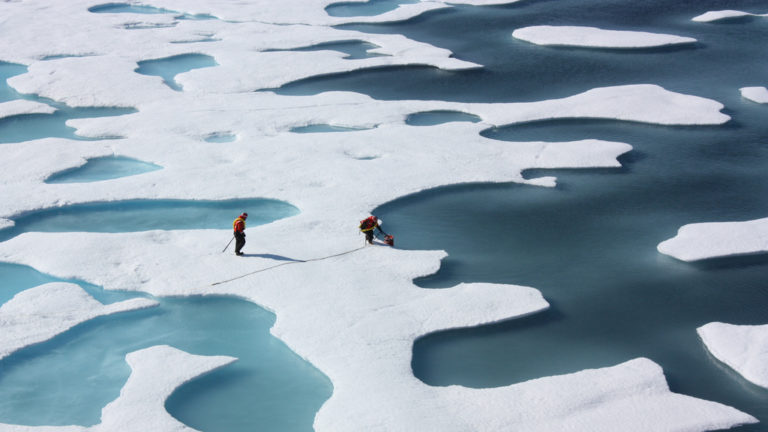
The hunt for snowballs might get difficult. Photo: Kathryn Hansen, NASA
Av: Fredrik Björksten
Instead, as research has confirmed over and over again, increasing greenhouse gas emissions raise the average temperature on earth over time. Therefore, in this edition we share some perspectives on issues related to climate change which may change our planet as we know it. Meanwhile, Senator Inhofe’s hunt for snowball and cheap points continues, although chances are it will be increasingly difficult for him to find one. We will, however, offer some thoughts on why Inhofe is in denial, on the consumerist culture, climate refugees, biofuels and the North-South divide in this issue.
6 mars, 2018, Editorial, English, FUF Lund, Magazine
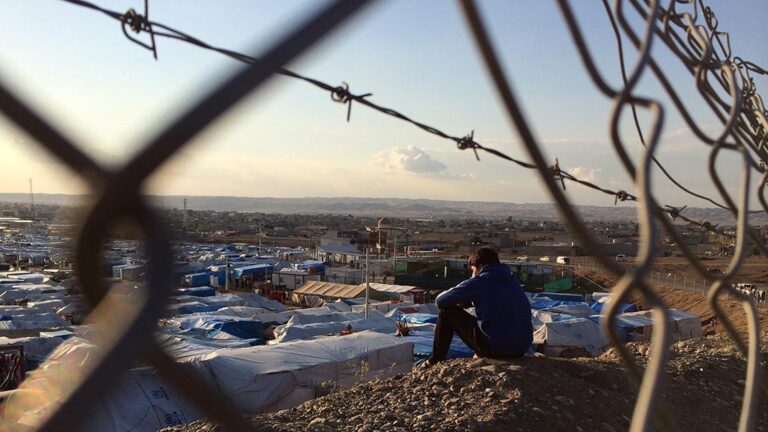
Foto: Caroline Gluck, EU ECHO
Av: Klara Eitrem Holmgren & Louise Gripenberg
The large numbers of displaced populations we see today have been responded to with overall regressive measures. Matthew Scott, an international lawyer specializing in migration, talked to us about the possibilities and challenges of displacement in the context of disasters and climate change that lie ahead. Matthew Scott is an international lawyer at the Raoul […]
Läs mer »
4 mars, 2018, Article, English, FUF Lund, Magazine

EU-standards aim at ensuring an eco-friendly biofuel production. But are social and ecological impacts taken into account sufficiently? Photo: alh1, Flickr
Av: Elin Fredriksson
Biofuels seem to be an important step in the combat against climate change, as they represent a renewable and less polluting alternative to fossil fuels. However, its agricultural production provokes controversial discussions. Several international organisations seek to raise awareness about the social and ecological impacts of the rising biofuel demand. One of the EU’s political […]
Läs mer »
1 mars, 2018, Article, English, FUF Lund, Magazine
Av: Fredrika Sweno
Despite increased awareness and research showing that climate change is real, peoples concern for the problem has been shown to decrease, including mine. Why do we rather ignore climate change than face it? Per Stoknes presents five main barriers that help us ignore this issue and brings clarity to why many of us rather not […]
Läs mer »
1 mars, 2018, Chronicle, English, FUF Lund, Magazine
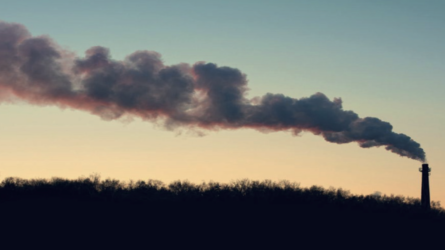
What are low-income countries obligations in combating climate change? Foto: Khuroshvili Ilya, Flickr
Av: Dimen Hoshiar och Mathilda Englund
Climate change is global in its nature, yet nations argue who ought to undertake the responsibility of solving the issue of global warming. International negotiations resulted in the Kyoto Protocol, which exempted low income countries from any obligations. Frank Baber, from the Raoul Wallenberg Institute, proposes a human rights approach in order to find a […]
Läs mer »
27 februari, 2018, Article, English, FUF Lund, Magazine









